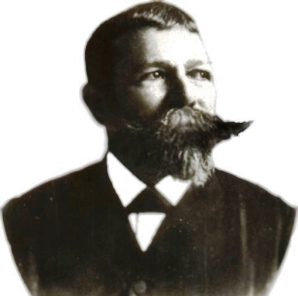Gabriel Casuso Roque: A Hero of Medicine and Cuban Independence.

In addition to his brilliant medical work, Casuso Roque had an outstanding teaching career, from his beginnings as an assistant professor at the Faculty of Medicine, to his election as Dean and later as Rector of the University of Havana.

The largest of the Antilles had in Gabriel Casuso Roque one of its most fervent defenders and scholars, revered not only for his multiple contributions to the fields of Cuban Gynecology and Obstetrics, but also for his stubborn struggle for the island’s independence cause.
Born on February 6th, 1850 in Guamutas, Matanzas province, he stood out from an early age for his solid academic training, graduating with a bachelor’s degree in arts at the Instituto de Segunda Enseñanza de La Habana in 1867 and, later on, at the Faculty of Medicine of the capital’s house of higher studies.
Once Céspedes’ emancipation campaign began, he interrupted his studies to join the expedition of General Rafael de Quesada y Loynaz and fight in the Liberation Army in 1869; however, shortly after, he was taken prisoner in serious health condition, so he was deported to Spain, where he recovered and continued his medical training, both in Madrid and Paris, where he specialized in Surgery and Gynecology.
Once the Ten Years’ War was over, he returned to his homeland, where he materialized a prolific career in surgery and, especially, in gynecology and obstetrics, areas that forever engraved his name in the national medical history. Not only did he introduce antisepsis in the island and contributed to reduce post-surgical mortality and puerperal fever, but he also stood out as one of the few physicians who at that time was able to perform risky abdominal surgeries.
Likewise, in the capital city he established, together with Dr. Ramón Claudio Delgado Amestoy, a gynecology service at the Hospital de Higiene de La Habana and the first private gynecology clinic in the country, facilities recognized for the quality and integrity of their medical services, which positioned him as an absolute reference in the field of national gynecology.
In addition to his brilliant medical work, Casuso Roque had an outstanding teaching and political career. From his beginnings as an assistant professor at the School of Medicine, to his election as Dean and later as Rector of the University of Havana, councilman in the City Council and Secretary of Agriculture, Industry and Commerce, his commitment to the training of new professionals and the integral development of the country was undeniable.
After a life dedicated to the service of medicine and the country, Gabriel Casuso Roque died on May 17th, 1923, leaving an indelible legacy in the history of Antillean medicine and in the development of higher education in the nation. His commitment to academic excellence and his tireless work for the benefit of the health of his fellow citizens made him one of the leading figures of Cuban medicine in the 19th and early 20th centuries.
Written by Yadiel Barbón Salgado.



